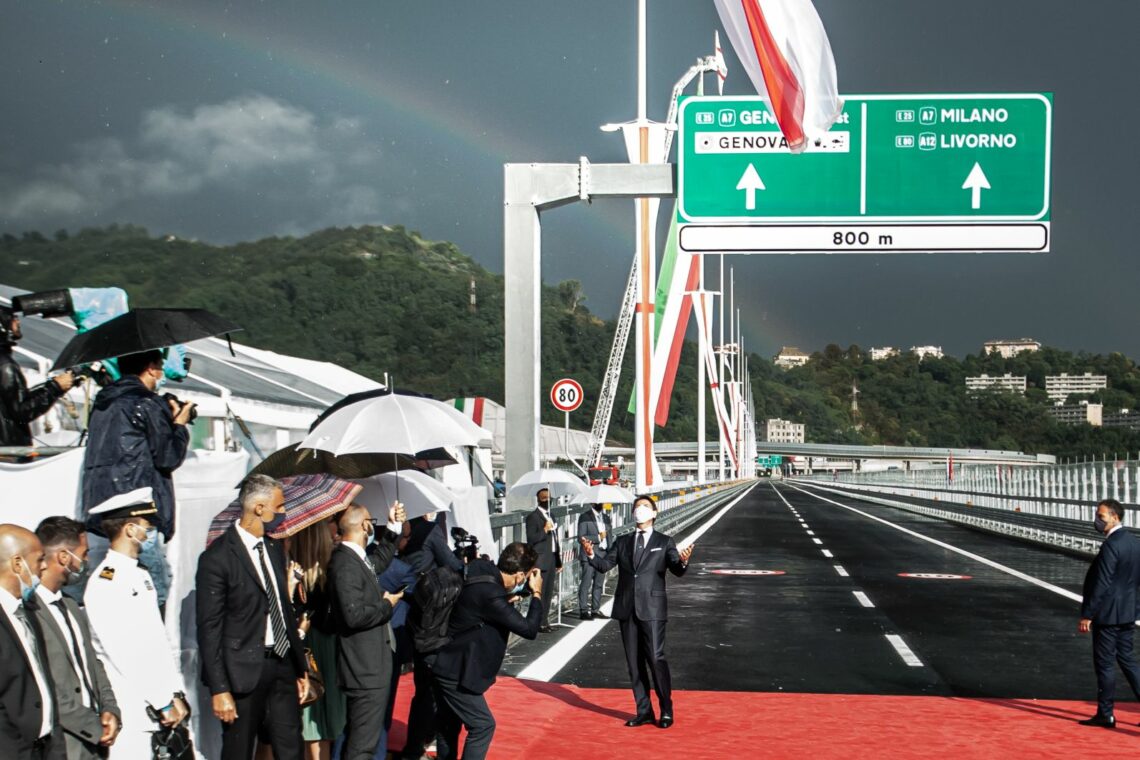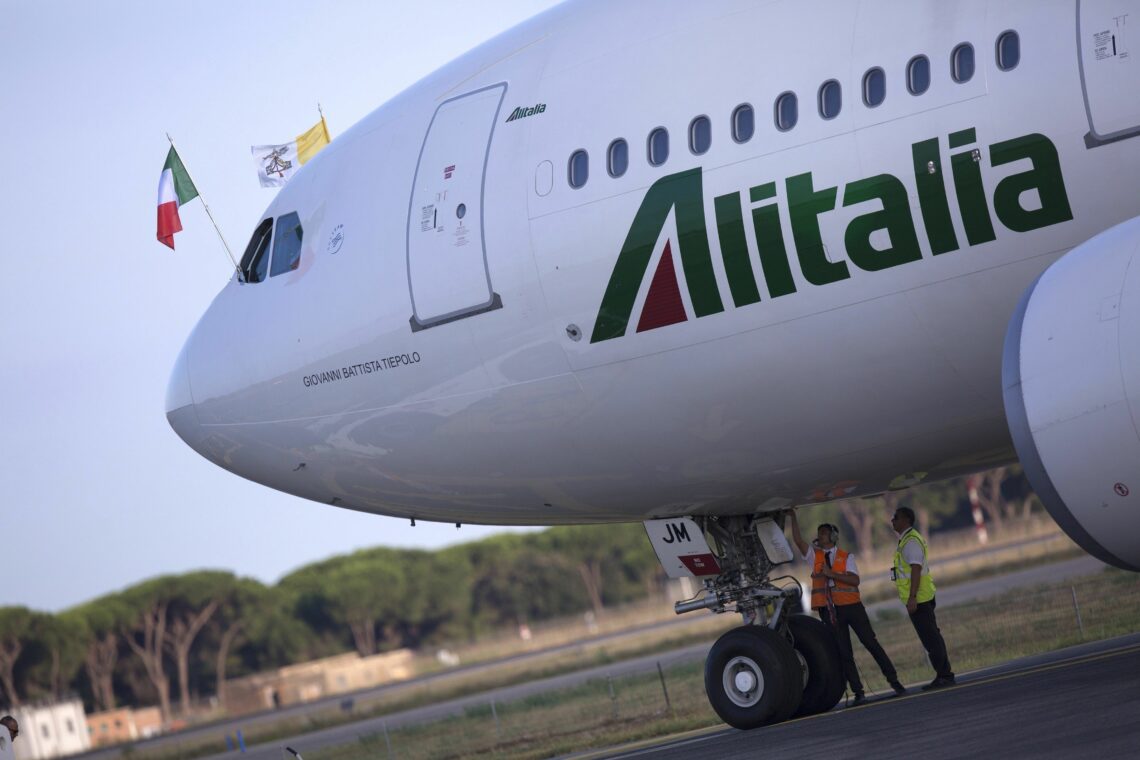Italy uses Covid crisis to ramp up nationalization
The left-wing government of Italy is using Covid-measures ostensibly aimed at curbing the economic crisis to ramp up nationalization. Though the meddling is unlikely to bring recovery, few are sounding the alarm.

In a nutshell
- Italy's government is using the Covid crisis to increase nationalization
- Prime Minister Conte is using unorthodox methods to increase grip on firms
- Opposition to these moves is weak in the face of European largesse
Even before the Covid-19 epidemic struck, forecasts put Italy’s economic growth for 2020 at 0.2 percent – below the already sluggish post-2000 average of 0.5 percent. Hoping to use the crisis to its advantage, the government has invested heavily in pandemic recovery measures. Since March, Prime Minister Giuseppe Conte has negotiated fiercely with other European Union member states for aid. He eventually secured nearly 209 billion euros in grants and loans as part of the enormous European stimulus package. Mr. Conte was able to play the European solidarity card so effectively because Italy – especially northern Italy – was the veritable epicenter of the coronavirus crisis.
The question is how the money will be spent. As part of EU coronavirus relief funds, the aid Italy receives should be focused on the health crisis. It would be conditional on improving Italy’s healthcare system, which is now a patchwork of regional structures. These local networks are financed through general taxation, but it is a region’s government that decides how funds are distributed. The quality of healthcare provided in the north of the country is generally considered adequate, and less so in the south. However, the coronavirus crisis has put the entire system under stress, even in the most efficient northern regions.
Control over the economy
The Conte government’s priority, however, is not healthcare – and not even in the broad sense of preparing for future pandemics (although the number of beds in intensive care units has increased). Instead, the Covid-crisis management has demonstrated that the government of Italy focuses on strengthening its grip on the economy and ramping up nationalization. The prospect of fresh European funds falling into their laps has emboldened the prime minister and his cabinet in their interventionism – and for the first time, they will have the resources to match their ambitions.
The government has signaled its desire to increase the role of the state in the economy.
Prime Minister Conte began his tenure as the agent of a coalition between the Five Star Movement (M5S), from the far left, and Lega, from the far right. After the governing coalition changed last year, the establishment-left Democratic Party replaced Lega and Mr. Conte was reconfirmed as head of government. The M5S and Democrats had a history of hostility, but the prime minister appears to have successfully forged an ideology that can keep the two together. Economic policy is central to this new set of principles.
The government has openly signaled its desire to increase the role of the state in the economy several times, such as by appointing advisors like Mariana Mazzucato, author of The Entrepreneurial State.
For the left, the goal of bringing an ever-larger share of Italy’s gross domestic product (GDP) under government control is hardly new. But the means now being applied – including ad hoc measures and discretionary powers used in ways that some consider illegal or improper – are clearly more attuned with the spirit of the M5S than with the Democratic Party.
From the beginning of the fight against Covid-19, a large chunk of money was distributed through a range of small handouts, mostly targeted at various electoral constituencies. Another part of the rescue package was used to nationalize the bankrupt airline Alitalia. Under normal circumstances, the European Union’s rules for state aid would have prevented such measures, but enforcement has been weakened. It was an opportunity that the Italian government was not going to miss.
Unorthodox methods
Mr. Conte and his allies do not believe economic recovery will require a legal framework that guarantees and protects property rights; for some, the very opposite is true. Firing employees has been banned through the end of the year, which not only promises a surge in unemployment when the ban is lifted, but also makes it more difficult for businesses to reallocate resources. Since Covid-19 is likely with us to stay, Italian firms will have to rethink how they provide certain goods and services.
Shareholders’ property rights have also been restricted, by imposing conditions on, or even banning, the purchase of shares by foreign parties. These regulations are now applied to insurers, critical infrastructure, nanotechnology and biotech companies, artificial intelligence, robotics and cybersecurity, as well as companies that deal with “sensitive information” (including personal data) and to the food supply chain. All of these are imposed at the government’s discretion, which justifies the moves by vague appeal to nationalism: Foreigners should not be allowed to buy Italian companies at discount prices just as the country is at its most vulnerable, the government’s argument goes.

Two examples to illustrate how this move works in practice. In 2015 the government-controlled energy company Enel established a broadband-services provider, Open Fiber, to compete against the privately owned Telecom Italia (TIM). Later, Cassa Depositi e Prestiti (a government bank) acquired a stake in TIM. Since then, the government has been trying to avoid a “duplication of investment” and to create a national champion in the sector.
But in July, TIM was poised to sell 40 percent of its copper and fiber network to United States private equity fund KKR & Co., which would have been a blow to those ambitions. In an extraordinary move, the government sent in a last-minute request to the company’s board – while it was in session – for a one-month delay, hoping to find a way to merge the two companies’ broadband arms. The company is now moving forward with the project, but the issue has become even more politicized as a focus of debate for the Italian chattering classes.
Though it was unprecedented, that move pales in comparison with the so-called Autostrade affair. On August 14, 2018, a bridge collapsed in Genoa, killing 43 people. The bridge was managed by a private company, Autostrade per l’Italia, whose controlling shareholder is listed holding company Atlantia SpA. The latter manages more than 14,000 km of highways throughout the world, and is controlled by the Benetton family, which owns 30 percent of the company’s shares.
An investigation into the bridge failure is ongoing. But from the beginning, the M5S seized on the tragedy as a justification for doing away with privatization entirely. In an intense media campaign, the party has targeted the Benetton family, which is a household name in Italy due to its well-known fashion brand and F1 racing team. The M5S has called for the highways to be renationalized since the day of the collapse. That the Transport Ministry shares responsibility for the tragedy is a fact the M5S considers unimportant.
Mr. Conte and his allies do not believe economic recovery will require a legal framework that protects property rights.
Early this year, the Italian government adopted new rules on revoking concessions for operating motorways, making it easier to do so and requiring the state to pay highway operators less compensation. In the end, the compensation Autostrade per l’Italia received was 7 billion euros, down from the 23 billion it would have received prior to the legislation being adopted.
Moody’s, Fitch and Standard & Poor’s all downgraded the company’s credit rating, making it virtually impossible for the company to borrow money on financial markets. As a result, the company was forced to agree to a takeover by Cassa Depositi e Prestiti. Close scrutiny from international media has put pressure on the government and convinced Atlantia to try to change the deal: if it must sell its stake, it wants to sell to the highest bidder. As of this writing, the issue remains unresolved.
On top of all this, just as it did with Alitalia, the government will likely soon nationalize the Ilva steel plant, which it sold in 2019 to ArcelorMittal after passing legislation that changed the deal’s terms.
Grim outlook
In the medium term, the government is determined to exploit the crisis to expand its footprint on the Italian economy. This would not be a promising outcome for a country whose biggest economic challenge is sluggish productivity, a problem it has been struggling with for 20 years.
Vast nationalizations propelled widespread corruption that erupted in several scandals in the early 1990s. In the following decades, many Italians understood that government involvement in the economy really meant micromanagement by political parties. That awareness, however, has generally faded. On the other hand, the government’s eagerness to lock horns with “greedy” private capitalists is popular among voters.
No business groups want to be left without a slice of the largesse from Brussels.
Private business faces a grim scenario. Ideologically speaking, the M5S is leading the charge, while the Democratic Party remains passive, joining in support of its coalition partner’s economic proposals. Though the Democrats’ have deep-rooted connections with the Italian business establishment, those relationships apparently have no effect on government policy.
As for the TIM issue, Beppe Grillo, the comedian turned M5S political leader, proposed splitting the firm into two companies: one providing telecom services and the other dealing with new infrastructure investment (and which the government would control). Mr. Grillo began his own political career crashing TIM shareholder meetings, and is a self-declared expert on telecoms. He is also the founder of the biggest party in parliament.
The possible re – nationalization of the telecom grid is only one in a series of public policies that point in the same direction: making the government of Italy even more central in the economy in the post-Covid era. Opposition is weak. Except for a handful of economists and thought leaders, few are putting up any resistance, and major interest groups remain silent or have even gotten behind the government’s effort. No business groups want to be left without a slice of the largesse from Brussels that will be handed to the Italian government as part of the Next Generation EU Covid-19 recovery plan. The government will use those funds on high-profile projects, to show Italian voters ahead of the next election how effective its economic management is.
In the long run, funding and nationalization is unlikely to produce economic growth or bring Italy back to its living standards pre-Covid-19. Unemployment will probably skyrocket as soon as the government lifts the ban on firing workers; already now, youth unemployment is a growing problem, because fewer sacked workers means less reason to hire new ones. Foreign companies will see the situation for what it is and decide that investing in Italy is not worth the risk.
Conflict may arise at the European level, too, particularly if Brussels eventually decides to resume enforcing its regulations on state aid. That would put the EU in the difficult spot of propping up an Italian government that refuses to play by the rules.








